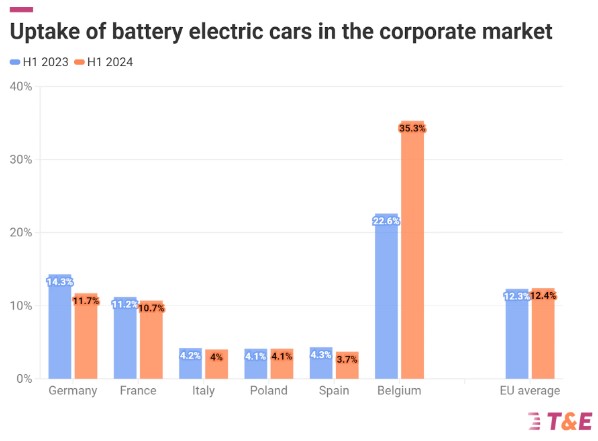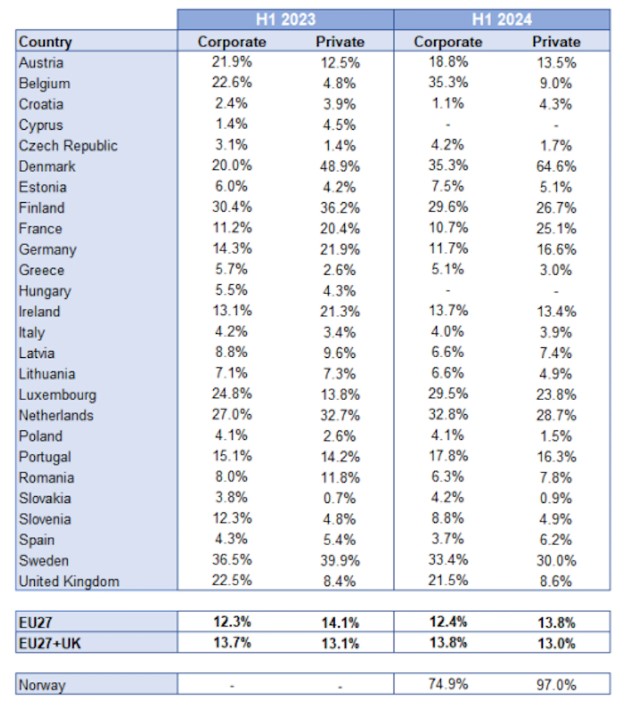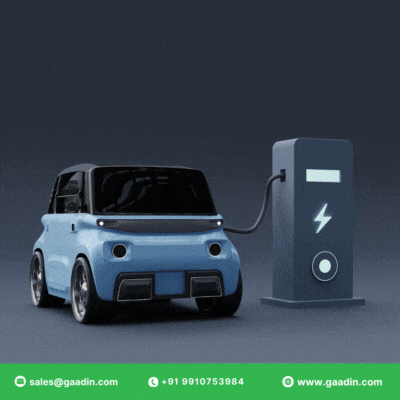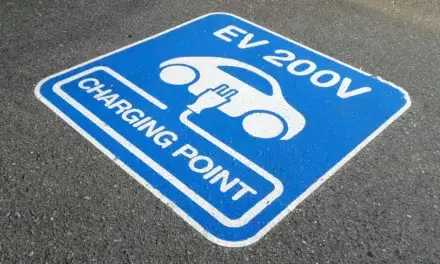The EU’s corporate car market stagnation is explained by poor progress in fleets electrification in Germany, France, Italy and Spain.
The slow uptake of EVs in the corporate car market is mainly explained by poor performances in Germany, France, Italy and Spain, the EU’s four biggest car markets.

-
In France, Spain and Italy, BEV uptake in the corporate market went down in H1 2024 compared to H1 2023 while the private segment increased.
Advertisement
-
In Germany, the corporate market continues to lag behind the private sector. The latter took a bigger hit due to the phase out of purchase subsidies for private buyers.
-
In Poland the company car market stagnated compared to H1 2023. Private registrations took a big hit (H1 2023 compared to H1 2024)
-
Belgium is the only country where the company car market is doing what is supposed to do i.e. be a green leader and lead the shift to electric. Main reason for this is the fiscal changes that Belgium introduced, phasing out tax cuts for fossil fuel company cars.
Company cars are a perk that employers are giving to their employees and both are getting tax breaks for this. Businesses also have the financial means to invest in green tech such as EVs. Therefore companies should be miles ahead of the private market and lead the transition to electric.
What does this mean for the agenda of the new European Commission?
In her Political Guidelines, von der Leyen has confirmed that the EU must and will stay course to meet the goals set out in the European Green Deal. Reducing transport emissions and electrifying road transport is a key element of this.
Looking not only at the size of the company car market but also the tax cuts that corporate cars are receiving, the European Commission should ensure that companies take their responsibility and lead the shift to green transport. The fact that this is not happening shows that there is a clear market failure at the moment. This is not a recent development but already taking place for the last three years. Hence EC intervention is not only needed but also justified.
“The EU should continue to boost EV demand by setting targets for big companies while sticking to the internal combustion engine phaseout by 2035 to create clarity. It’s definitely feasible that we ask large companies in Europe that as of 2030 they can only purchase or lease battery electric cars”, said Stef Cornelis, fleets director at T&E.
Advertisement
















